HIV Testing
New HIV infection remains a major concern in Nigeria. Most infected persons do not have any symptoms at all. The only way to know if you’re infected is to get tested. Don’t wait for symptoms to show up. Get tested. Take control of your health.
Confidential
Quick turnaround
Reliable accuracy
A simple, quick result test that tells you if you have antibodies in your blood against HIV.
The presence of these antibodies may indicate a previous infection with HIV.
These antibodies usually develop 2-8 weeks after infection. A single reactive result is not sufficient to confirm HIV infection.
Additional testing is necessary.
This test checks for the presence of antibodies against HIV in your blood. Additionally, it also checks for the presence of some proteins unique to HIV.
It is, therefore, able to detect the presence of the HIV infection earlier than tests which only check for HIV antibodies.
A single reactive result is not sufficient to confirm HIV infection.
Additional testing is necessary.
This test checks for the actual virus in the blood. It can also give information about the amount of virus present in the blood.
This test detects the presence of HIV earlier than other tests.
It should be considered for people who have had a recent exposure or a possible exposure and have early symptoms of HIV and who have tested negative with an antibody or antigen/antibody test
How it works
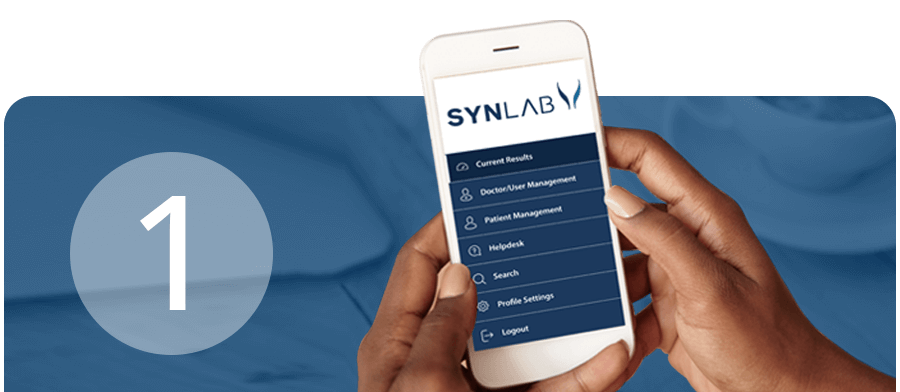
Order online
Order your test online, select, and pay for your preferred panel.
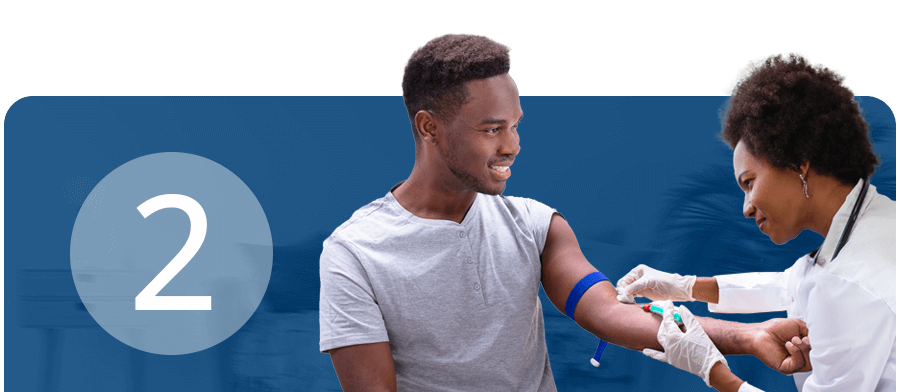
Collect your sample
Choose to have our medical team come in for home sample collection or visit a Synlab centre near you for your sample collection.
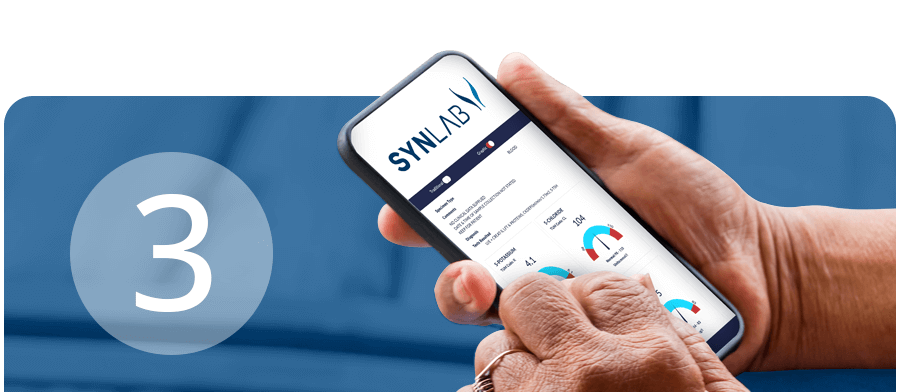
Review accurate results
Accurate and confidential results are available on your secure online Pathprovider account. You will get notified as soon as your results are available.

Get medical support
If you have any queries, please contact our 24-hour customer support centre at +234 700 7284 2273.
HIV STATISTICS
#2
Nigeria has the second largest HIV epidemic in the world and one of the highest rates of new infections in Sub-Saharan Africa
2 of 3
Adults living with HIV are not aware of their status.
7 in 10
People living with HIV are in sub-Saharan Africa.
HIV stands for Human Immunodeficiency Virus. The virus affects humans by attacking the body’s immune system, weakening it, and making it unable to fight infections and other diseases.
Most people get infected with HIV through sexual intercourse. It may also be spread by sharing sharps such as needles, syringes or other drug injection equipment such as that used for illicit drug use. It can also spread from mother to child during pregnancy, childbirth, or breastfeeding following a transfusion with infected blood.
- Fever
- Headache
- Muscle aches and joint pain
- Rash
- Sore throat and painful mouth sores
- Swollen lymph glands, mainly on the neck
- Diarrhea
- Weight loss
- Cough
- Night sweat
Causes of HIV
HIV is caused by a virus. It can spread through sexual contact, illicit injection drug use or sharing needles, contact with infected blood, or from mother to child during pregnancy, childbirth, or breastfeeding.
HIV destroys CD4 T cells – white blood cells that play a large role in helping your body fight disease. The fewer CD4 T cells you have, the weaker your immune system becomes.
Risk Factors
Multiple sexual partners
Unprotected sex
Other sexually transmitted infections
Accidental needle injuries
Multiple blood transfusions
Alcohol or other drug use
Frequently Asked Questions
If you are still unsure about this test, here are some questions that we usually get asked.
Still need answers?
How can I avoid getting HIV?
The best way to avoid getting HIV is to abstain from sex. If you do have sex, you can protect yourself by
- Always using a condom when having sex.
- Exclusively having sex with one person who is not infected.
What happens if I get HIV?
If it is confirmed that you are infected with HIV, it is important to visit the nearest antiretroviral clinic, where the government provides free drugs which have remarkable efficacy in managing the disease.
How long should I wait to get tested for HIV?
There is a window period between exposure to HIV and when a test can detect HIV in your body. The window period depends on the type of HIV test used. The window period is at least 23 to 90 days for the HIV stat test, 18 to 90 days for the antibody/antigen test and 10 – 33 days for the PCR test.
Benefits
When you get your test done with SYNLAB, you have access to our benefits.
Customer-centric reporting
PathProvider gives you direct access to all of your test results and reports across all your devices without having to leave your home.
Benefits of being a PathProvider registered user
- Your profile is a secure personal space
- Access your results any time, any day, all year round
- Results can be checked on any smartphone, computer, or tablet
- All your previous results are archived on your profile
- Set your notification preferences when results are ready. Choose email or SMS.
- Not a doctor? Switch to the popular ‘graphic view’ and get to understand your results.
- You can share or print your results directly from your profile.
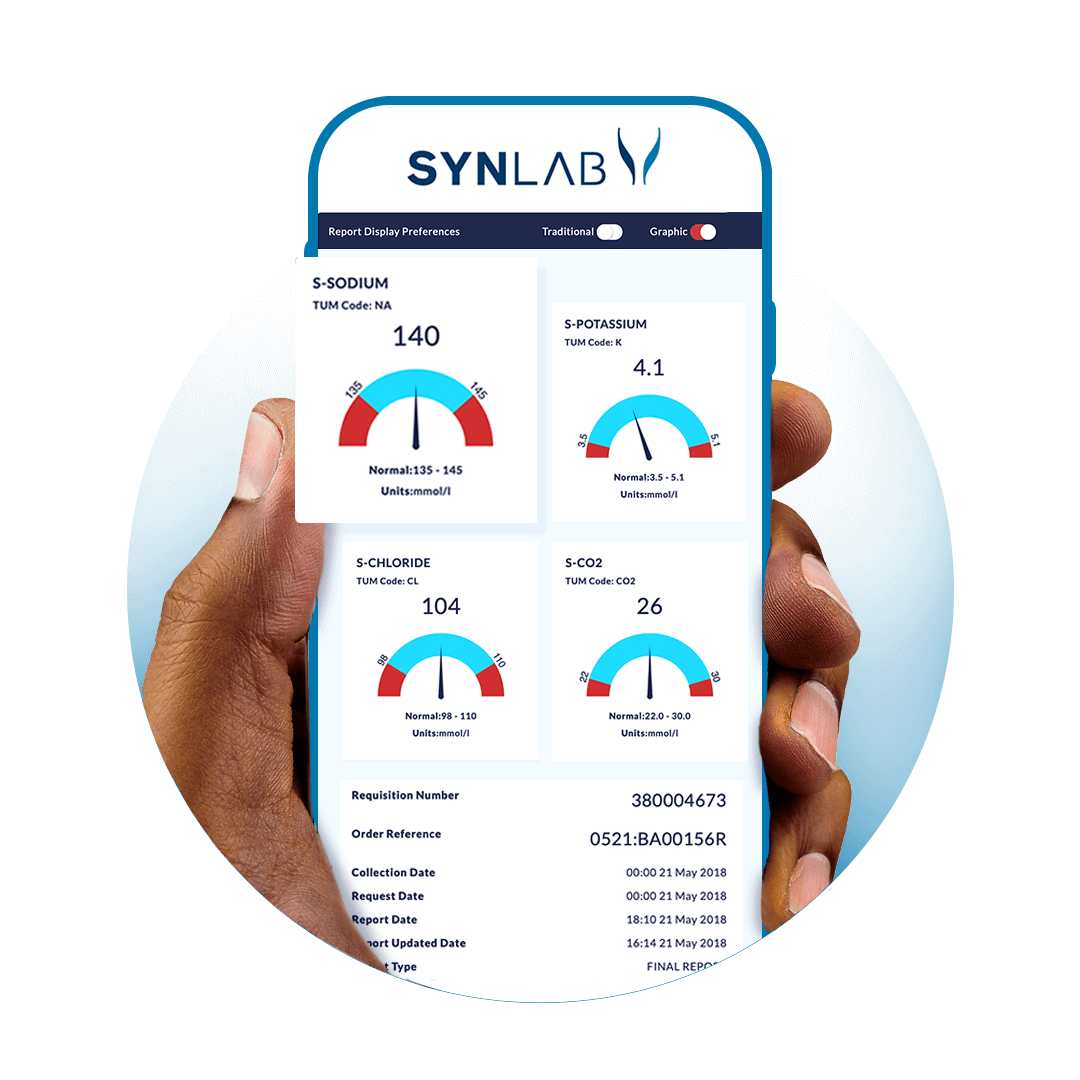

Choose home collection.
Get complete convenience
Get your results as they become available online.
You can choose to get your entire family tested in the comfort of your own home. Choose a day and a time that is convenient for you, and we’ll send one of our trained professionals to your door.
No more sitting in traffic. Now you can manage your health in the comfort of your own home.
Total confidence.
Award-winning medical diagnostics
Accuracy of results, reliability, trust, and quick turnaround time.
We are audited by an external body which ensures that we implement the highest ethical standards and international best practices.
SYNLAB was awarded the 'Private Laboratory Service Provider of the Year' in Nigeria award by the Nigeria Health Excellence Awards (NHEA).
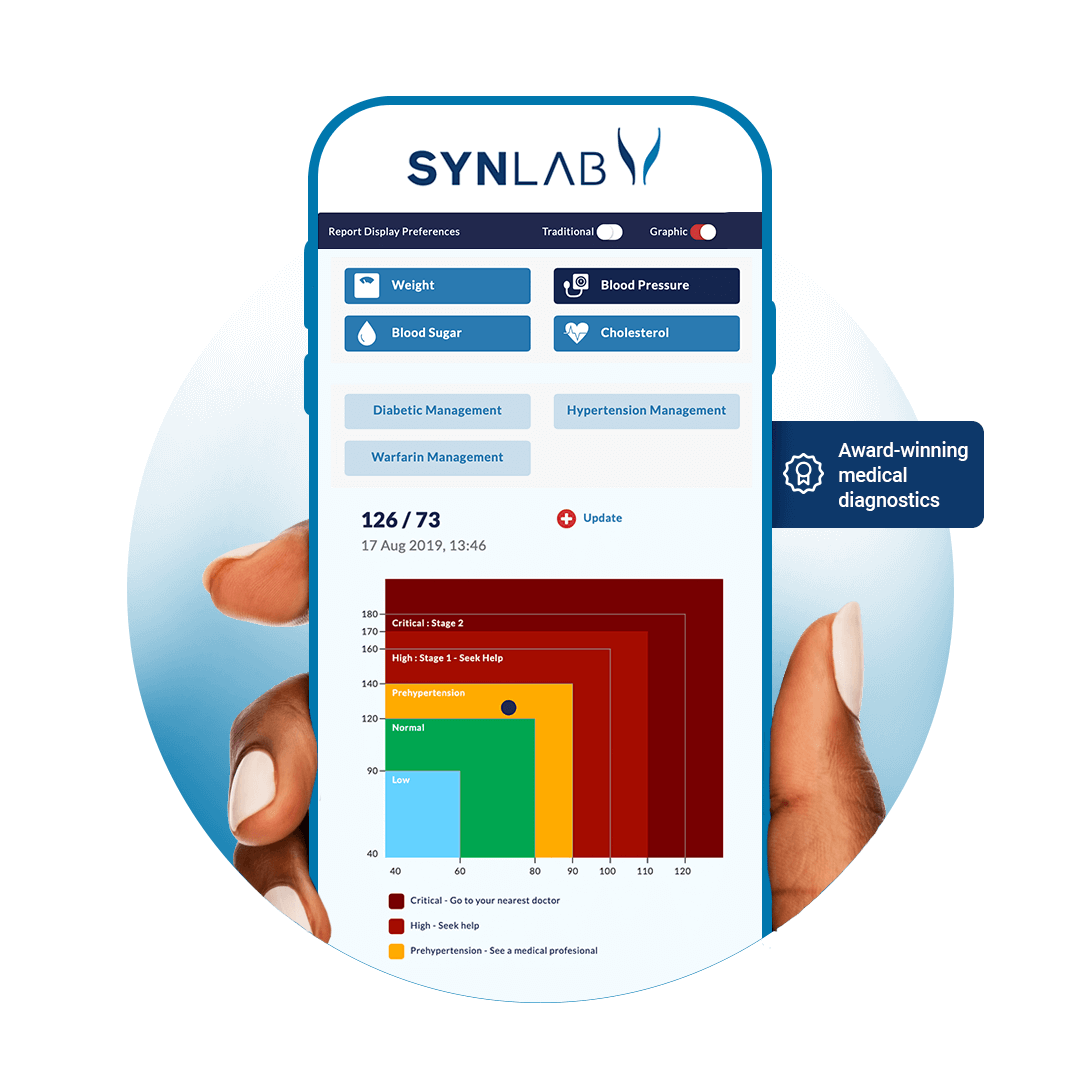
Select the test that’s right for you
A comprehensive panel provides more information on a wider range of STIs.
Our most advanced wellness panel. It gives a detailed assessment of liver function and structure, kidney structure and function, diabetes mellitus, thyroid function, bone health, blood disease, risk of heart and blood vessel disease, Immunity, urinary tract health, and illnesses associated with chronic inflammation.
It also checks for cervical and colon cancer.
Our most advanced wellness panel. It gives a detailed assessment of liver function and structure, kidney structure and function, diabetes mellitus, thyroid function, bone health, blood disease, risk of heart and blood vessel disease, immunity, urinary tract health, and illnesses associated with chronic inflammation.
It also checks for colon cancer and the risk of prostate cancer.
A once-in-a-lifetime comprehensive genetic test to determine life-long individual drug compatibility.
